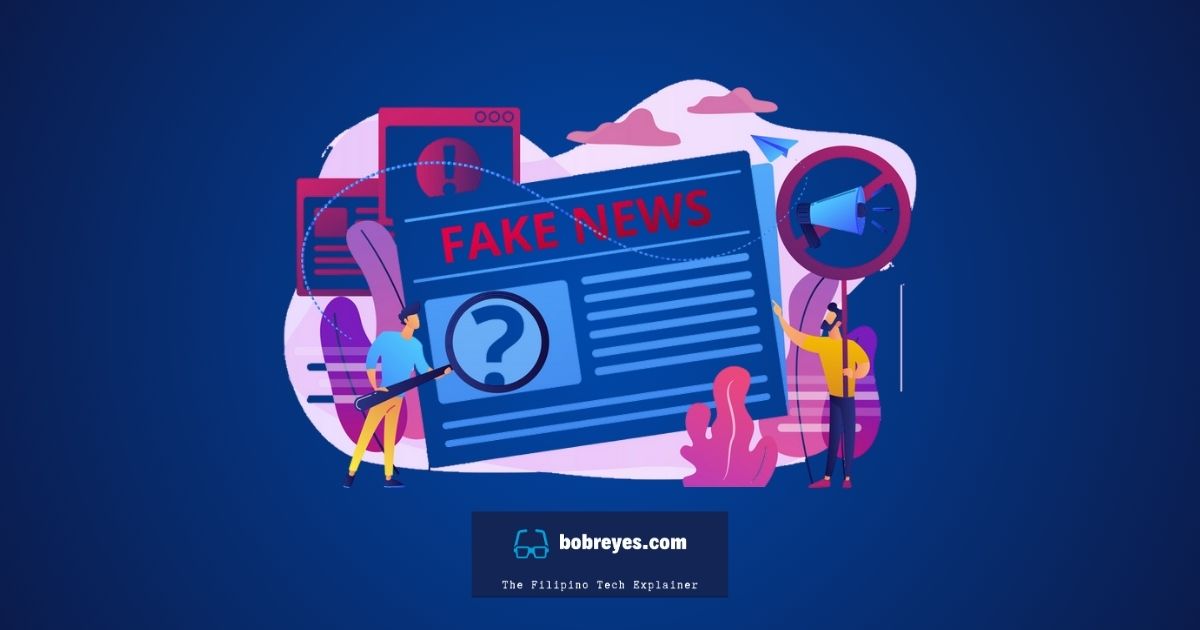The House of Representatives convened a joint committee hearing to address the alarming spread of online disinformation in the country. The meeting held earlier today, led by the Committees on Public Order and Safety, Information and Communications Technology, and Public Information, was held in response to House Resolution No. 286, which aims to investigate the rampant dissemination of false and malicious content on social media platforms while upholding freedom of speech and ensuring digital safety.
The hearing was attended by key legislators, government agencies, social media personalities, and resource persons from various sectors, including representatives from the Department of Information and Communications Technology (DICT), National Bureau of Investigation (NBI), Philippine National Police (PNP), Department of Justice (DOJ), and members of the academe. However, many social media personalities invited to the session failed to attend (out of the 41 individuals invited, only 3 were present), with some declining the invitation outright, citing concerns about the hearing’s objectives and possible implications on free speech.
Legislative Concerns on Online Disinformation
The primary concern raised in the hearing was the increasing impact of disinformation on public discourse, democratic processes, and national security. Lawmakers emphasized that fake news and coordinated digital manipulation have played a significant role in shaping public perception, often resulting in the spread of harmful narratives.
Senior Deputy Speaker Aurelio “Dong” Gonzales Jr., one of the principal authors of House Resolution No. 286, underscored the importance of developing new regulations for social media platforms, “Social media is a powerful tool for connectivity and information sharing, but it is also being used to spread malicious content that can incite violence, mislead the public, and erode trust in democratic institutions.”
The Role of Social Media Platforms
One of the key points discussed was the responsibility of social media platforms in curbing fake news and misleading content. Several lawmakers proposed the establishment of a regulatory framework similar to that of traditional media, requiring social media companies to implement stricter content moderation policies, transparency measures, and accountability mechanisms.
Rep. Robert Ace Barbers suggested that platforms like Facebook, TikTok, and YouTube should be treated as legitimate businesses and be required to obtain accreditation or franchise licenses to operate in the country. “We must ensure that digital platforms uphold ethical standards, just like traditional media outlets. If television and radio broadcasters are regulated, why should social media remain unchecked?” he argued.
Concerns Over Freedom of Expression
Despite the call for regulation, some participants expressed concerns over potential threats to freedom of speech. Legal experts and members of the academe warned against hasty legislation that could lead to government overreach and censorship. Some experts highlighted the risks of implementing broad anti-fake news laws, which have been misused in other countries to suppress political dissent and target journalists.
Proposed Solutions & Future Actions
Several recommendations were presented during the hearing, including:
- Strengthening digital literacy programs to help the public discern credible sources of information.
- Enhancing fact-checking initiatives through independent organizations.
- Holding social media platforms accountable for the spread of false information by enforcing stricter content moderation policies.
- Revisiting and amending the Cybercrime Prevention Act of 2012 (Republic Act No. 10175) to address emerging digital threats.
House leaders agreed to conduct follow-up hearings and invite more stakeholders, including representatives from mainstream media and survey firms accused of conducting manipulative polling practices. In addition, resource persons who failed to attend the hearing without valid excuses may be issued show-cause orders.
As online disinformation continues to evolve, legislators stressed the urgency of enacting appropriate policies that safeguard both digital safety and fundamental rights. With the upcoming hearings, the Philippine Congress aims to develop a comprehensive strategy to combat fake news while fostering responsible digital citizenship.
The next session is expected to include more discussions with media organizations, legal experts, and technology stakeholders to refine proposed measures against disinformation in the country’s digital landscape.


